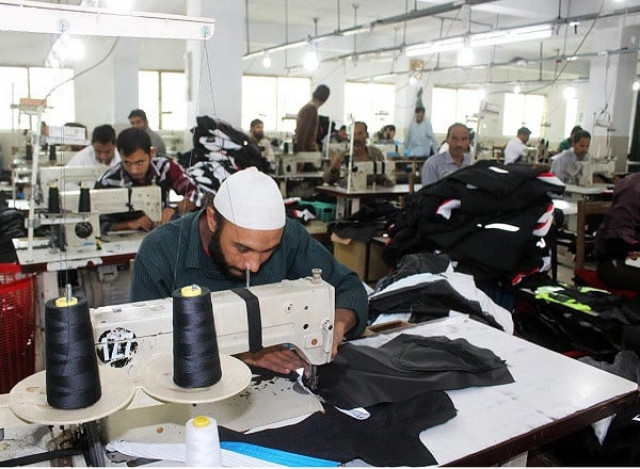PM aide foresees record jump in textile exports
Shipments expected to reach $21 billion in FY22

The textile sector is supporting the country’s flailing economy as exports are set to jump to a record high after Pakistan gained an edge over South Asian rivals during the pandemic, said Adviser to Prime Minister on Commerce Abdul Razak Dawood.
In an interview with an international news agency, the adviser said that textile exports were poised to surge 40% year-on-year in fiscal year 2021-22 to a record level of $21 billion.
Dawood predicted that the figure would expand to $26 billion in the next fiscal year, surpassing the total exports of fiscal year 2020-21.
The textile industry - which supplies everything from knitwear and garments to denim jeans to buyers in the US and Europe - is one of the country’s few economic bright spots.
The share of textile items in Pakistan’s total exports stands at 60% and its factories reopened ahead of India and Bangladesh when the pandemic first emerged in 2020, drawing orders from global brands.
“A lot of orders shifted from Bangladesh and India to Pakistan during the pandemic,” said Dawood. “The other good thing is that we are now becoming competitive with Bangladesh.”
Dawood stated that “three to four years ago, Bangladesh was really beating us”.
Read Domestic cotton stock to end in February
The government also plans to announce a proposal next month, which will likely provide incentives for exports to new markets such as Africa, South America and Central Asia, he shared.
The government was doubling down on efforts to boost textile exports through diverse measures including tax breaks, cheap loans and streamlining electricity tariffs, Dawood said.
He was of the view that nearly 60% decline in the rupee against the US dollar since 2018 also helped.
“Pakistan’s exports have turned competitive over the past few years,” said Ismail Iqbal Securities Chief Executive Officer Ahfaz Mustafa.
He added “there is a fixed energy tariff regime that keeps in view the regional prices. The government is quick to refund the money it owes to exporters and there has been mammoth currency devaluation.”
According to Mustafa, the country is looking to increase exports to get out of the regular boom-bust economic cycle, which has forced it to seek International Monetary Fund (IMF) programmes 13 times since the late 1980s.
Published in The Express Tribune, February 1st, 2022.
Like Business on Facebook, follow @TribuneBiz on Twitter to stay informed and join in the conversation.





1733130350-0/Untitled-design-(76)1733130350-0-208x130.webp)












COMMENTS
Comments are moderated and generally will be posted if they are on-topic and not abusive.
For more information, please see our Comments FAQ